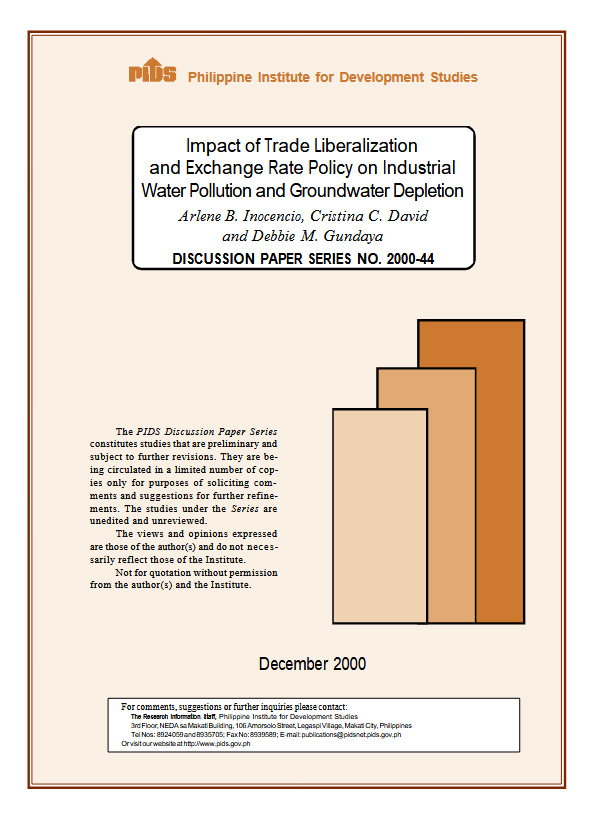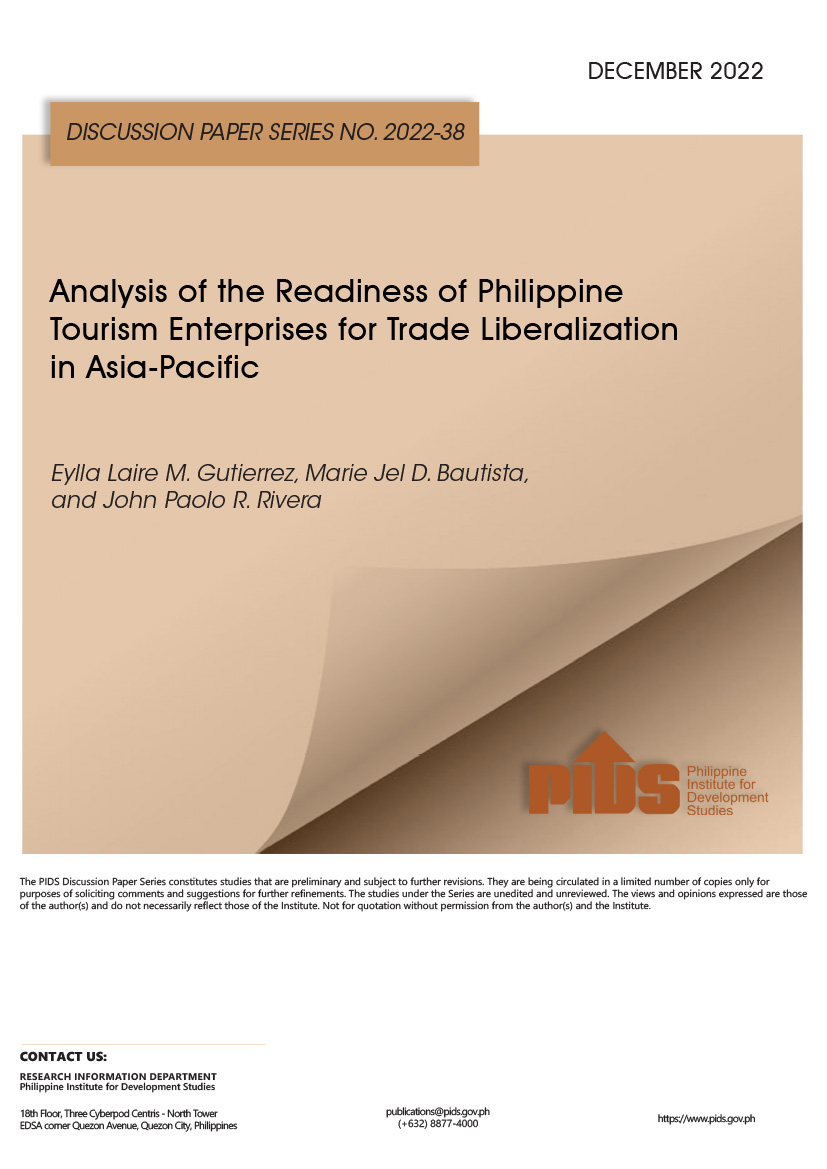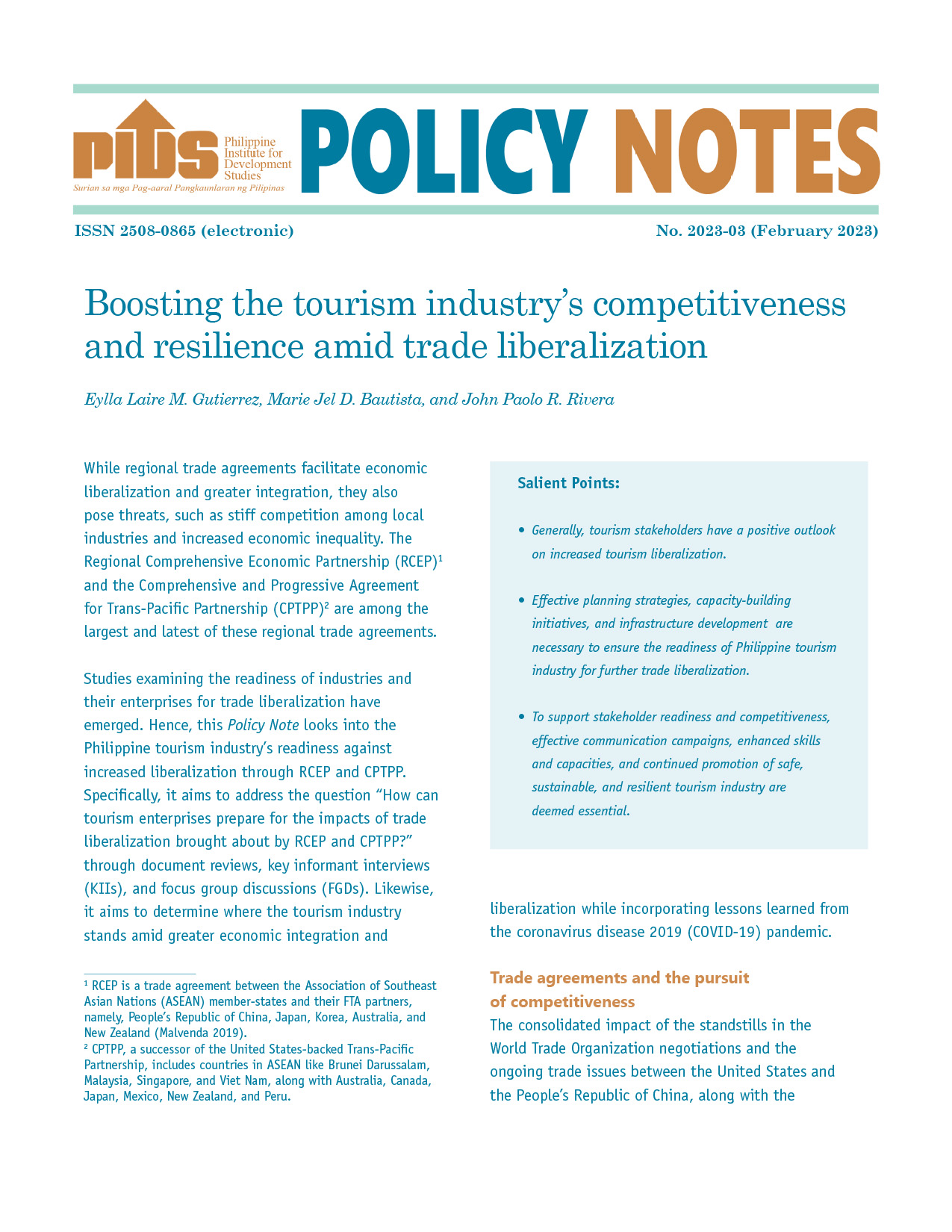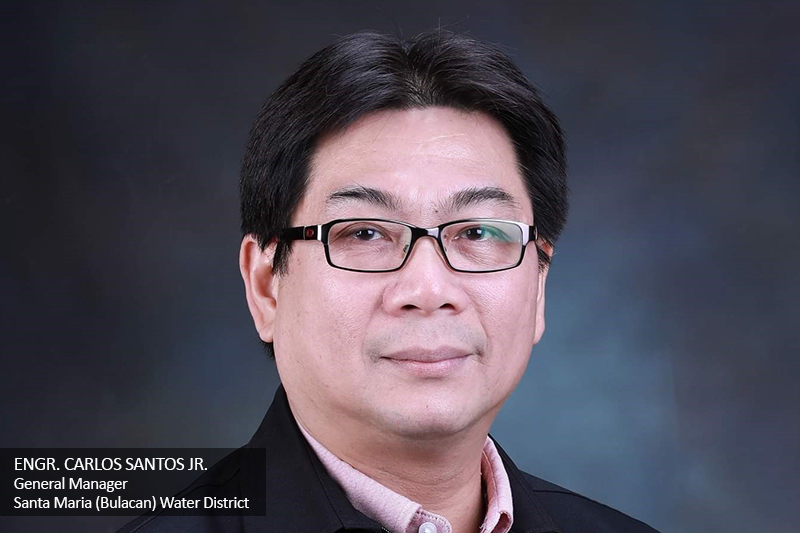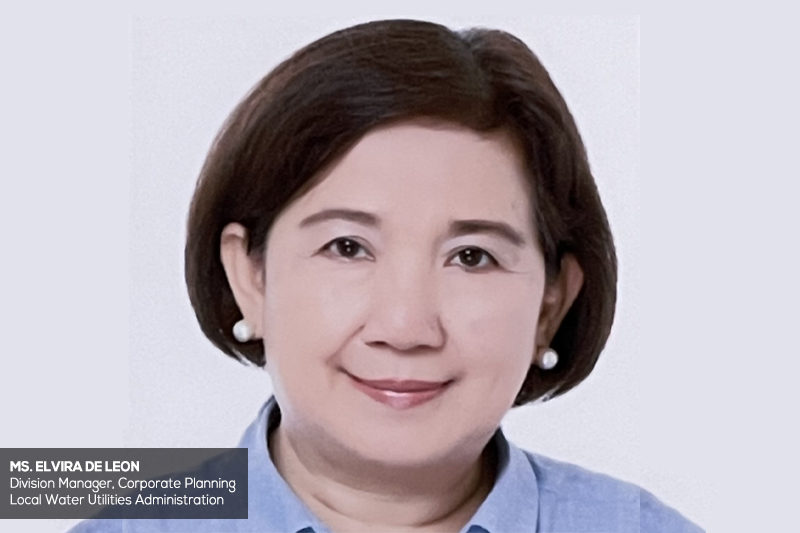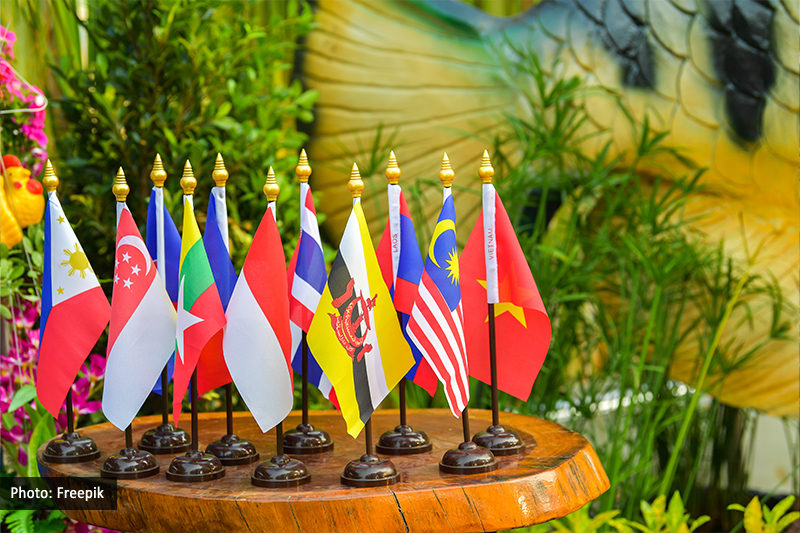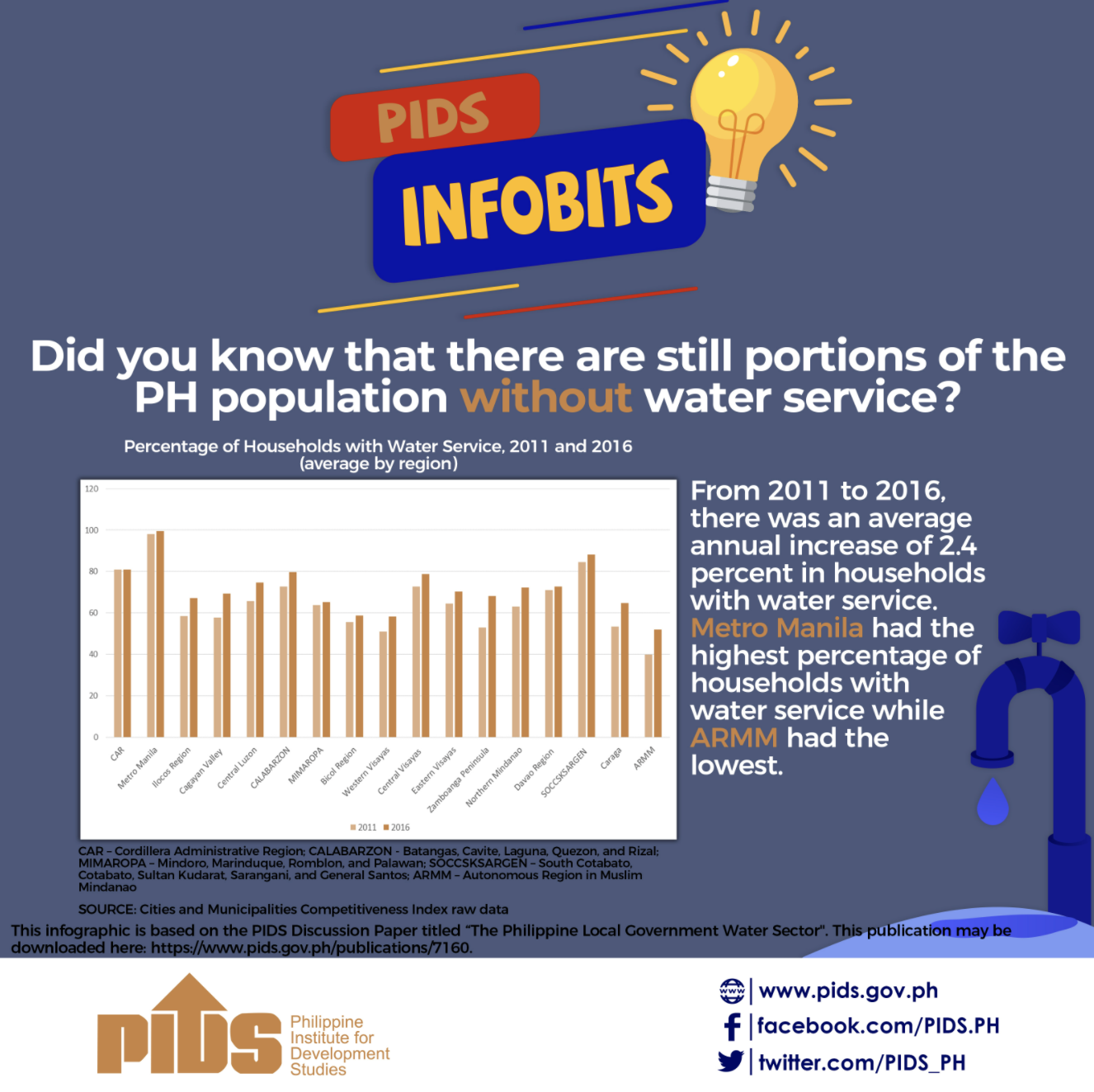Environmentalists and economists alike have assumed that greater economic openness will lead to increased industrial pollution in developing countries. This paper argues that trade liberalization does not necessarily result in more pollution intensive industrial development using the case of two economic centers in the Philippines. The study links changes in trade and exchange rate policy to the environment by identifying the environmental damage likely to be aggravated by the policy change through its effects on water usage. Specifically, it examines whether and in what way trade liberalization and exchange rate policy will affect water pollution and groundwater depletion. Results of a partial equilibrium model, which relates changes in industry outputs to changes in their effective rates of protection (EPR) and changes in the real exchange rate, are linked to firm level data for Metro Manila and Metro Cebu on water pollution, water use intensities and source of water.
Citations
This publication has been cited 1 time
- Shambaugh, George and Shareen Joshi. 2021. Bridges over troubled waters? The political economy of public-private partnerships in the water sector. Sustainability, 13, no. 18, 1-14. MDPI.

